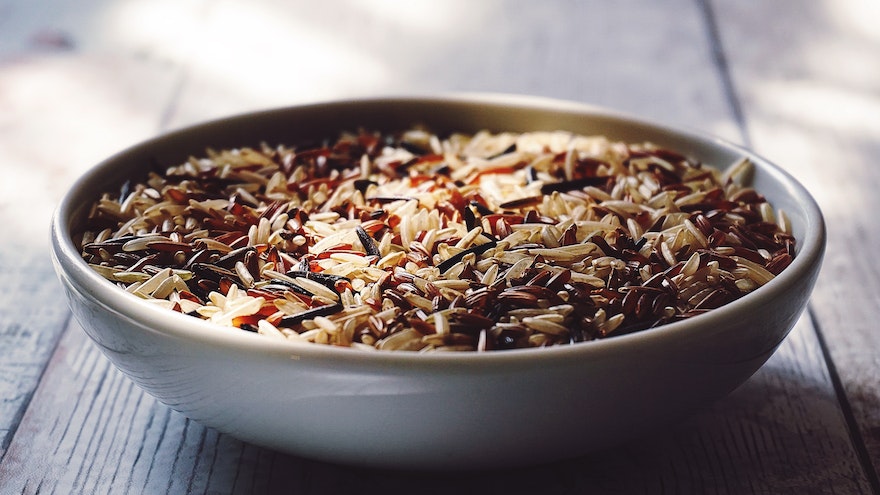Are you tired of constantly feeling bloated and experiencing gut inflammation? If so, you may want to consider incorporating prebiotics into your diet. Prebiotics are non-digestible carbohydrates that act as food for the beneficial bacteria in our gut, known as probiotics. This can have a significant impact on reducing gut inflammation and improving overall gut health.
What are Prebiotics?
Prebiotics are a type of non-digestible carbohydrate that acts as food for the beneficial bacteria in our gut. They are not digested by the human body, but instead pass through the stomach and small intestine unchanged, reaching the large intestine where they are fermented by the probiotics. This fermentation process produces short-chain fatty acids, which have a variety of health benefits, including reducing gut inflammation.
Why are Prebiotics Important for Gut Inflammation Relief?
Prebiotics are essential for gut inflammation relief because they help to increase the number of beneficial bacteria in our gut. These beneficial bacteria play a vital role in maintaining gut health and preventing inflammation. When our gut microbiome is out of balance, with too much bad bacteria and not enough good bacteria, it can lead to a variety of health issues, including gut inflammation. Prebiotics help to restore the balance of bacteria in our gut, which can help to reduce inflammation and improve overall gut health.
How can You Incorporate Prebiotics into Your Diet?
There are a variety of prebiotic-rich foods that you can incorporate into your diet to help reduce gut inflammation. Some examples include:

- Whole grains: Whole grains, such as oats, barley, and quinoa, are rich in prebiotics and can help to improve gut health.
- Legumes: Legumes, such as lentils, beans, and chickpeas, are also rich in prebiotics and can help to improve gut health.
- Vegetables: Vegetables, such as onions, garlic, and asparagus, are also rich in prebiotics and can help to improve gut health.
- Fruits: Fruits, such as bananas, apples, and berries, are also rich in prebiotics and can help to improve gut health.
It is important to note that prebiotics work hand in hand with probiotics, which are beneficial bacteria that live in our gut. When you take in prebiotics, the probiotics in your gut will ferment them, which leads to the production of short chain fatty acids that provide a whole host of health benefits including reducing inflammation. Therefore, it is also important to take in probiotics through fermented foods such as yogurt, kefir, and kimchi.
Prebiotics for Gut Inflammation Relief: The Benefits of Prebiotics
- Increased beneficial bacteria in the gut: Prebiotics help to increase the number of beneficial bacteria in our gut, which can help to reduce inflammation and improve overall gut health.
- Production of short-chain fatty acids: The fermentation process of prebiotics by probiotics produces short-chain fatty acids, which have a variety of health benefits, including reducing gut inflammation.
- Improved gut health: Prebiotics help to restore the balance of bacteria in our gut, which can help to improve overall gut health.
Prebiotics for Gut Inflammation Relief: How to Incorporate Prebiotics into Your Diet
- Whole grains: Whole grains, such as oats, barley, and quinoa, are rich in prebiotics and can help to improve gut health.
- Legumes: Legumes, such as lentils, beans, and chickpeas, are also rich in prebiotics and can help to improve gut health.
- Vegetables: Vegetables, such as onions, garlic, and asparagus, are also rich in prebiotics and can help to improve gut health.
- Fruits: Fruits, such as bananas, apples, and berries, are also rich in prebiotics and can help to improve gut health.
You May Also Like:
Prebiotics for gut inflammation relief: Conclusion
Incorporating prebiotics into your diet is an effective way to reduce gut inflammation and improve overall gut health. By increasing the number of beneficial bacteria in our gut, prebiotics can help to reduce inflammation and improve overall gut health. Incorporating prebiotic-rich foods into your diet, such as whole grains, legumes, vegetables, and fruits, can help to improve gut health and reduce gut inflammation.
Want to take your gut health to the next level? Download our free gut health guide and try a free 3-day supply of our prebiotic and probiotic green drink called Life Greens. Our guide is filled with helpful tips and information on how to improve your gut health and our green drink is a great way to get a boost of prebiotics and probiotics to improve your gut health.


